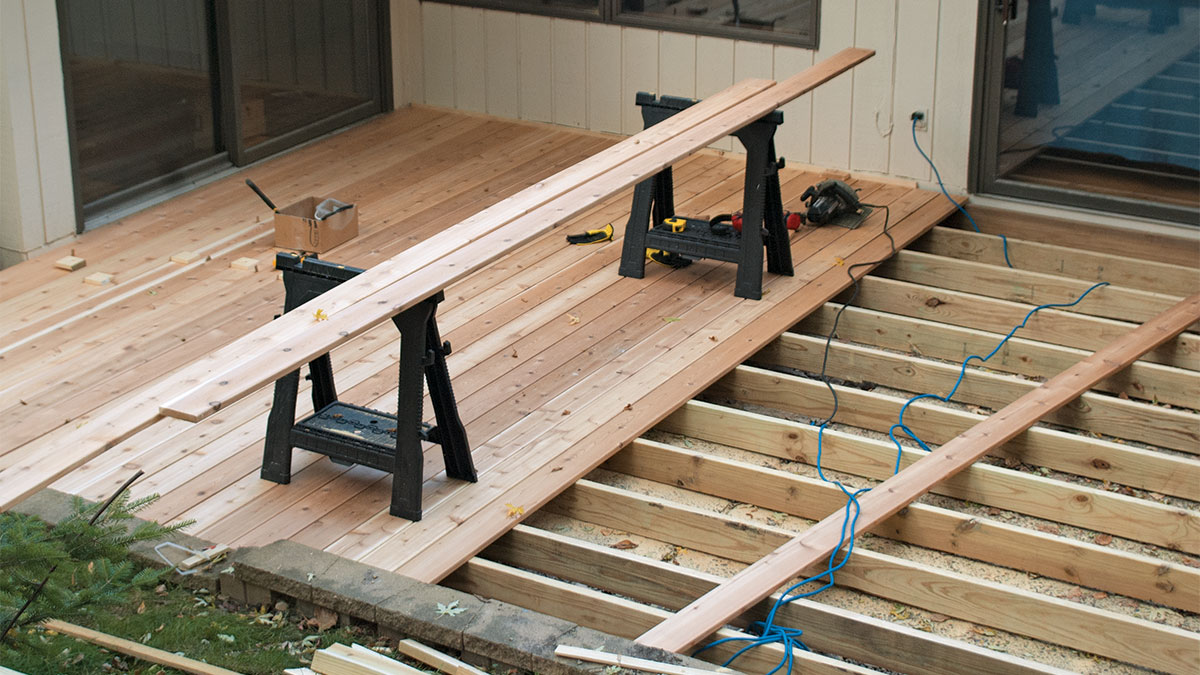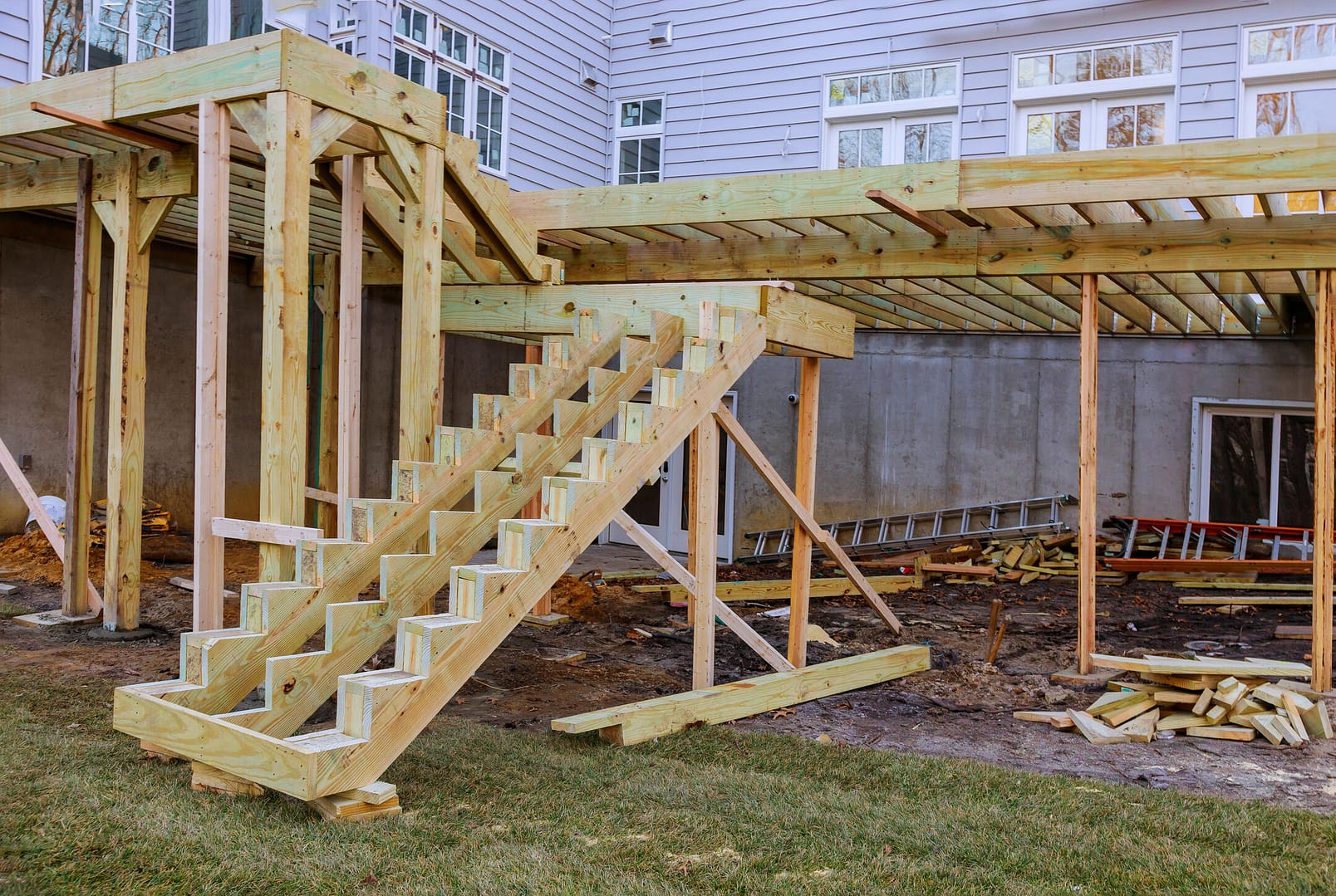A successful deck installation starts with detailed planning and a trustworthy crew.
A successful deck installation starts with detailed planning and a trustworthy crew.
Blog Article
Exactly how to Select the Right Products for Your Deck Installation Task
Selecting the proper materials for your deck installation job can seem difficult. There are many variables to take into consideration, from durability and maintenance to looks and ecological effect. The choice between typical timber and composite products, each with its very own set of advantages and downsides, can be especially tough. The secret is to balance your budget, layout preferences, and way of life requires to produce a deck that will improve your outdoor space for years to come.
Understanding the Different Types of Deck Products
When embarking on a deck installment project, the selection of materials ends up being a crucial choice. Various alternatives are offered, each with distinct attributes and visual charm. Conventional wood, for example, provides a classic, all-natural look and is normally much more affordable. It can warp over time and needs regular maintenance. Composite materials, on the various other hand, are a blend of wood and plastic, giving longevity and resistance to weather elements. They demand much less maintenance contrasted to wood but are normally more expensive. Another alternative is plastic, which is practically maintenance-free and resistant to insects and rot, albeit much less natural-looking. By understanding these differences, home owners can make an extra informed choice on one of the most appropriate deck material for their particular demands.
Evaluating the Longevity and Maintenance Requirements of Deck Products
Evaluating the longevity and maintenance requirements of deck products is an essential step in deck setup. Sturdiness includes the product's capability to withstand rough climate conditions, wear and tear, and its longevity.
Understanding upkeep needs is equally crucial. Some materials call for regular sealing or discoloring to preserve their appearance and withstand wetness damage, while others, like composite outdoor decking, require much less maintenance. By evaluating these factors, one can pick the most suitable outdoor decking product, guaranteeing a balance between resilience, upkeep demands, and aesthetic appeal.
Cost Analysis: Contrasting Wood and Composite Decking
Although cost may originally look like an additional issue, it is a significant variable when contrasting timber and composite decking. Timber, generally a cheaper choice, has a lower upfront price. Over time, upkeep expenses can accumulate, potentially making wood more costly in the long run. These maintenance costs may include discoloration, sealing, or replacing harmed boards. On the other hand, composite outdoor decking, while more expensive at first, needs much less maintenance, possibly reducing long-lasting costs. It's essential to bear in mind that composite decking isn't resistant to put on and tear, and replacement costs can be high. Prospective deck proprietors have to consider their budget plan and readiness to keep their decks when deciding in between wood and composite decking.
Appearances and Layout Adaptability of Decking Materials
All-natural timber outdoor decking gives a traditional, timeless appearance, while composite materials use a wide range of colors and structures to fit varied tastes and styles. Composite materials, while much less adaptable in style, are still adaptable enough for most deck layouts. These aspects, therefore, are essential components in the selection of outdoor decking product.
Environmental Effect of Decking Products
When selecting decking materials, one should consider not only looks and toughness, however also the environmental influence. It is very important to evaluate the sustainability of materials and explore recycled decking my sources choices. Furthermore, comprehending the possible influence on neighborhood ecosystems will make sure a more environmentally responsible choice.
Evaluating Material Sustainability
In the realm of deck construction, evaluating material sustainability is an important step. This entails reviewing the ecological impact of each possible material, thinking about factors such as the energy required for its manufacturing, its carbon impact, and its end-of-life disposal or recycling choices. Wood is a renewable source, but unsustainable logging methods can lead to logging. Conversely, composite outdoor decking products typically incorporate timber and plastic, decreasing the need for brand-new lumber but enhancing reliance on fossil gas. Aluminum and various other steels might be much more resilient and recyclable, however their removal and handling can be energy-intensive. Thus, the option of outdoor decking products ought to balance performance, visual appeals, cost, and sustainability to ensure a liable and lasting setup.
Recycled Decking Alternatives

Composite outdoor decking is particularly prominent due to its longevity and convenience of upkeep. It's resistant to rot, pests, and fading, making it a durable choice. Recycled plastic decking, on the other hand, is very resilient and calls for very little maintenance. While these materials might lug a higher preliminary price, their long life and minimized environmental effect make them a smart investment for the eco-conscious property owner.

Impact on Local Environments
While the benefits of utilizing recycled materials for decking can not be overemphasized, it's similarly important to take into consideration the wider ecological implications of these choices. Correct disposal of old outdoor decking is crucial to decreasing garbage dump waste. Essentially, an eco-conscious deck project needs mindful product choice, lasting sourcing, and responsible disposal.
Making Your Decision: Tips for Picking the most effective Deck Materials
As the post shifts into the subtopic of "Making Your Decision: Tips for Choosing the most effective Deck Products", it is essential to understand the selection of deck materials available. Striking a balance in between longevity and aesthetic appeal is crucial in this choice procedure. The complying with discussion will certainly assist readers in making an informed selection based on these vital factors to consider.
Comprehending Various Deck Products
The job of choosing the best materials for your deck setup can seem discouraging as a result of the vast variety of choices readily available. However, recognizing the various products can simplify this process. Wood is a prominent option, using a timeless aesthetic and price. Kinds of timber used consist of pressure-treated lumber, cedar, and redwood. Composite materials, made from a mix of wood and plastic, are low-maintenance and resistant that site to rot and bugs. Plastic or PVC decks are a lot more durable and require much less upkeep than composite materials, however they can look much less natural. Aluminum decks are strong, lightweight, and immune to rot, yet they are also the most expensive choice. Each material has its very own benefits and drawbacks, making it crucial to consider your specific demands prior to making a final choice.
Sturdiness vs. Aesthetic Appeals Balance
Balancing durability with aesthetic appeals can be a challenge when selecting deck materials - deck installer austin. High-traffic areas might necessitate durable materials like composite outdoor decking, which endures wear and tear however may do not have the all-natural beauty of wood. House owners need to strike a balance, considering both the deck's useful demands and their visual choices.
Conclusion
In conclusion, choosing the best materials for your deck installation project requires cautious consideration of elements such as sturdiness, upkeep, cost, aesthetic appeals, and ecological effect. Whether you go with traditional timber or composite products, your option ought to straighten with your budget plan, style choices, and way of living. Inevitably, the most effective outdoor decking material is one that boosts your outdoor area and gives satisfaction for several years check my reference to come.
Report this page